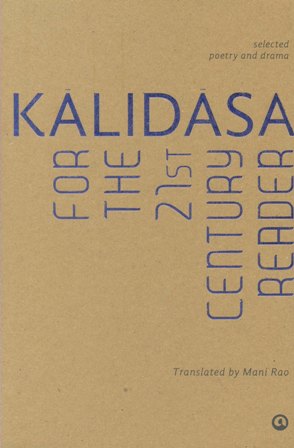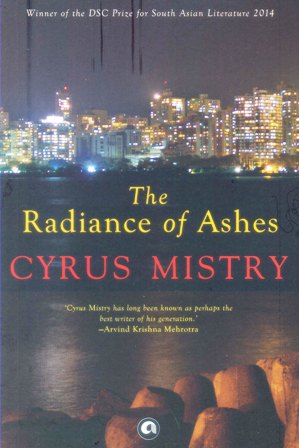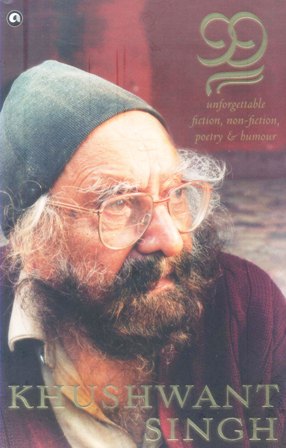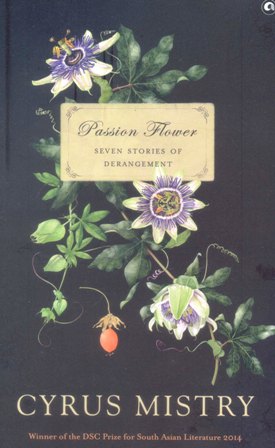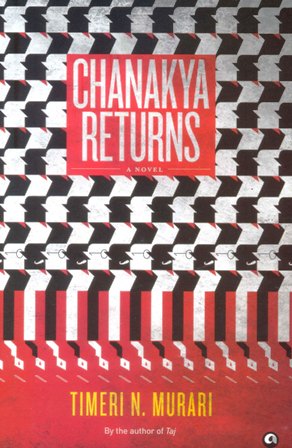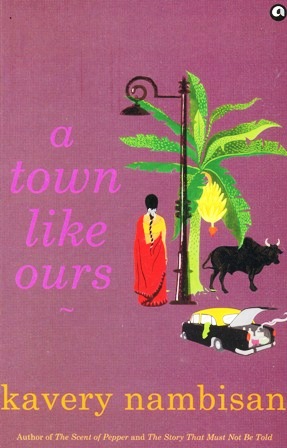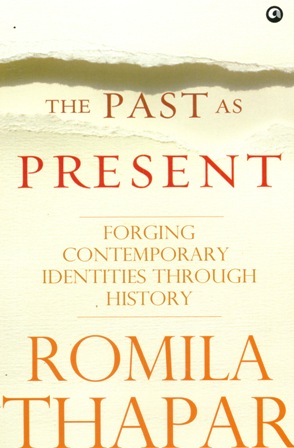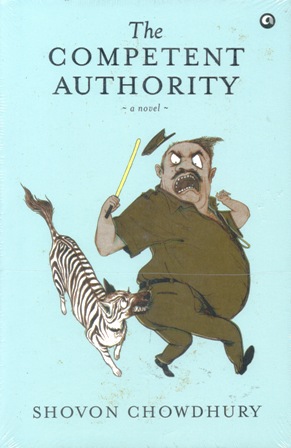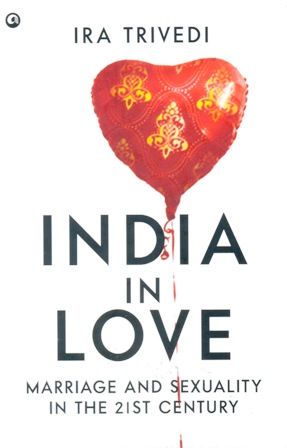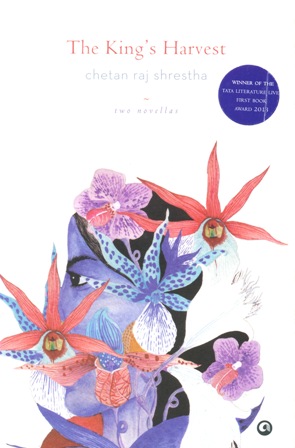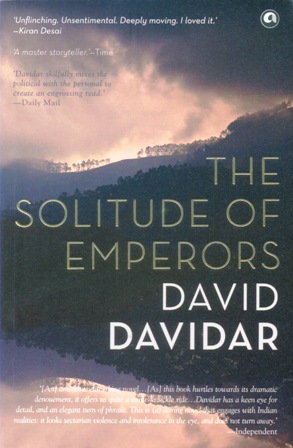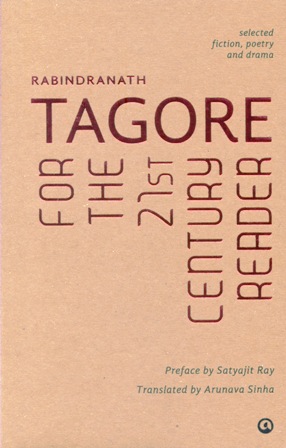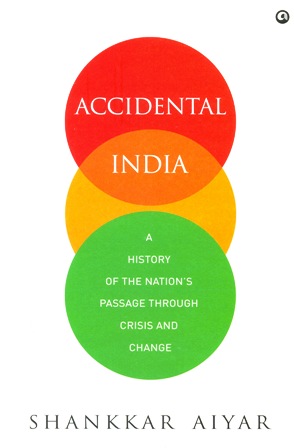-
Kalidasa For The 21st Century Reader
A fresh and very readable translation of the world's greatest Sanskrit writer, Kalidasa. Kalidasa (circa fourth century CE) is widely regarded as the greatest poet and dramatist in the Sanskrit language. Not much is known with certainty about his life, and though many are aware of his timeless Sakuntalam and Meghadutam, very few have actually read him, even in translation. The aesthetics of poetry may have changed over 1500 years-we no longer compare women's faces to lotuses or their figures to vines-but it is difficult not to be moved by the sheer beauty and lyricism of Kalidasa's description of the exiled yak?a beseeching a cloud to carry his message across the mountains to his lover, or his evocative narration of the meeting of doomed lovers in the forest. Mani Rao's supple, contemporary translation removes the distance between Kalidasa and the modern reader; she helps 'read' the poetry for us while remaining loyal to the text. Selections from all seven of the great poet's works (which are considered by Sanskrit scholars to be authentically his creations) are included in this volume- Meghadutam, Kumarasambhavam and ?tusa?haram; the heroic exploits narrated in Raghuva?sam which gives us a remarkable picture of ancient India; as well as the celebrated dramas Abhijnana Sakuntalam, Vikramorvasyam and Malavikagnimitram. This is a translation that belongs to today; Kalidasa renewed.
-
The Radiance Of Ashes
Award-winning author Cyrus Mistrys first novel Drifter, dropout, dreamer Jingo believes he has rejected any form of class privilege in a hideously unequal society. Making a meagre living as a part-time door-to-door market researcher, he jots down notes on characters and insights for a novel. Is he serious about his self-professed vocation? Or just too laid-back, just too fond of getting high? As the story moves effortlessly from a middle-class Parsi housing colony to a far-flung slum on the outskirts of the city, memories of a bitter love affair continue to haunt Jingo, but its only when his other romance-with the city-erupts in a nightmare of horror that he realizes hed better wake up before its too late. The Radiance of Ashes is a beautifully described tale of desire, duty and dreams. It is also a story about families, about the truths we hold and the lies we tell, about the fires that burn in each of us-what is left once the flames have died away.
-
99 : Unforgettable Fiction, Non - Fiction, Poetry
The definitive anthology of the work of one of our greatest and most entertaining writers. 99 collects in a single volume the finest pieces Khushwant Singh published over the course of a long and prodigiously creative life. The essays, extracts, stories and poems (one for each year of his life) have been chosen for their excellence or because they represent an aspect of the authors versatility and range. Some of the selections are well known. Others have never been published in book form. The book is divided into fifteen sections and showcases his exceptional achievement as a writer. Family Matters contains extracts from his autobiography and some personal narratives, My Beloved Country has some extraordinary writing about India. The Sikhs comprises excerpts from his books A History of the Sikhs and Ranjit Singh and essays on the community and translations of the Sikh hymns. The Uses and Abuses of Religion features his articles on the dangers of communalism and a sublime meditation on religion, Khushwant Singhs accounts of Pakistan and Pakistanis (including one of the most dazzling examples of journalism in our time, The Hanging of Bhutto) are included in Passage to Pakistan, he wrote interestingly about famous people all his life and twelve of his profiles feature in Singular People, a self-taught naturalist, he was passionate about the world of nature-The Ferocity & Flamboyance of Nature has writings on this theme. All About Sex contains some entertaining ruminations on sex, one of the subjects that he was most associated with in the popular imagination. As with sex, so with humour-a few of his funniest jokes find a place in A Merry Heart. Enthusiasms, Rants & Soliloquies has a fair representation of his electrifying polemics on a variety of subjects. A wise and honest man, his most insightful pieces on life, dealing with adversity, ageing and death find a place in How to Live, How to Die. As a novelist, he was superlative-selections from the six novels he published are to be found in The Novels, Portrait of a Lady and Other Stories features the eponymous story along with a few others, a great admirer of writers in Urdu, Punjabi and Hindi, he translated many of their works, some of which can be found in Exchange of Lunatics - Fiction in Translation and A Passion for Poetry. Published on the anniversary of Khushwant Singhs birth, this is the definitive anthology of the work of one of our greatest and most entertaining writers-it will offer the reader page after page of thought-provoking pleasure.
-
Passion Flower - Seven Stories of Derangement
Award-winning author Cyrus Mistrys first collection of short stories. Award-winning author Cyrus Mistrys first collection of short stories is dark, mysterious and inhabited by characters that walk a thin line between fantasy and reality. A serendipitous discovery on the floor of a local bus transforms the melancholic life of Percy, who meets a ghost in the washroom of a public library, a new mother struggling with depression and the urge to end her newborns life opens the door to a stranger, stalked by mysterious men, Jacintha believes her enemies are out to eliminate her because she knows too much, on New Years Eve, an aged couple clashes, replaying an annual ritual that shrouds the unacknowledged secret buried between them twenty-three years ago, two childhood friends, now co-workers at an advertising agency, indulge in a never-ending display of one-upmanship, false camaraderie and intense, unspoken resentment, Bokha tries to counter the powerful black magic of his wicked old mother in order to shield his helpless lover and Mahendroo, full of himself, is consumed by his obsessive search for an elusive species of Passiflora. Original and disturbing, Passion Floweris another triumph from one of the countrys most gifted storytellers. Interesting facts Cyrus Mistry is the author of Chronicle of a Corpse Bearer which won this years DSC Prize for South Asian Literature, one of the subcontinents most prestigious literary prizes. This is the authors first collection of short stories and it is sure to get a lot of attention in the media. The stories are unique and some of them offer a rare glimpse into the life of Bombay Parsees, something Cyrus is adept at writing about About the Author Cyrus Mistry began his writing career as a playwright, freelance journalist and short-story writer. His play Doongaji House, written in 1977 when he was twenty-one, has acquired classic status in contemporary Indian theatre in English. One of his short stories was made into a Gujarati feature film. His plays and screenplays have won several awards. His previous works include the novels The Radiance of Ashes (2005) and Chronicle of a Corpse Bearer (2012), which won the DSC Prize for South Asian Literature 2014.
-
Chanakya Returns : A Novel
An unputdownable political thriller from best-selling author Timeri Murari. Chanakya Returns covers a vast canvas of power, love, history, politics, betrayals, sex and more. It is narrated by Chanakya (370 - 282 BC), reincarnated in the contemporary world as the adviser to Avanti, the daughter of the head of a nameless state in India. In the course of the novel, Chanakya poses an eternal question: What shapes our lives - The Power of Love or the Love of Power? His protge, Avanti, has to choose between love and power. The choice Avanti makes has all sorts of implications not just for herself and her dysfunctional family, but for the people of the state her family has ruled for years. In his previous existence, the historical Chanakya was exiled from his homeland and took his revenge on the king who was the cause of his misfortune by defeating him in a war. He was then responsible for anointing Chandragupta as ruler of the Mauryan Empire and advising him on every aspect of statecraft. In the novel, Chanakya provides the same services to Avanti. He manoeuvres the awkward young daughter of a charismatic, powerful politician across the chessboard of power to becoming a brilliant successful politician and leader in her own right. About the Author Timeri is currently writing about the continued machinations of Chanakya and the dysfunctional, ruling family. His previous novels include The Taliban Cricket Club, which was published in eight countries and Taj, which was translated into 25 languages. Time magazine chose his film, The Square Circle, as one of its top ten films of 1997.
-
A Town Like Ours
so why have they come, why did they choose Pingakshipura of all places Are they seeking or are they running away? Nourishing myself with bidi fumes, I watch, listen and think. I want to know. Pingakshipura-where the water runs a poisonous black and the hair on every childs head is white. And yet, it is a village-turned-town like any other in India, where every life hides a story. Reclining on her thin mattress in a room at the corner of the temple, Rajakumari, retired whore and long-time resident of the town, shares with us some of these stories. Of Saroja and Sampathu, unlikely lovers and parents who have both fled scenes of murder. Of Kripa and Manohar, the childless couple discovering something new about each other after long years of marriage. Of Lectric Mamu, injured by the infidelity of the one woman who is immune to his charms. Of Gundumani, the boy with the crooked leg and his almost-sister, Rukmini. Of the temple priest, one-time servant of the red-eyed Pingakshi, who birthed the towns new divinity - Sugandha Enterprises. In her seventh novel, Kavery Nambisan takes us again, with great sensitivity and fierce clarity, into the heart of rural and small-town India and into the lives of everyday people, where everything is extraordinary. Interesting Facts Author shortlisted for the Man Asian Literary Prize and the DSC Prize for previous novel The Story That Must Not Be Told. About the Author: Kavery Nambisan is a writer and a surgeon. She picked up the pen after starting to practise surgery and has since combined two professions successfully, because she says - she does nothing else. She is the author of six novels: The Truth (Almost) About Bharat, The Scent of Pepper, Mango-coloured Fish, On Wings of Butterflies, The Hills of Angheri and The Story That Must Not Be Told (shortlisted for the Man Asian Literary Prize and the DSC Prize).
-
The Competent Authority
A couple of decades from now, India is not shining the Chinese have nuked large parts of the country; Bombay has been obliterated; Delhi is in the throes of rigorous reconstruction; Bengal has seceded and is now a protectorate of China; the Maoists have taken over much of what remains. The southern states are a distant and tranquil place that nobody has visited in years. The most powerful person in the country is a deranged bureaucrat called the Competent Authority, who has used his official position as the head of the Bureau of Reconstruction, to subvert all forces of governmental authority. Cloaked in anonymity, his identity known only to his terrified minions, the CA rules the remnants of India with an iron fist. Although, in theory, the government and the armed forces still exist, the Prime Minister, who looks very familiar, and the General, who commands the Army, are mere puppets in the hands of the Competent Authority. All they can do is watch in horror as he tries to put in motion a fiendish plan to annihilate everyone in the country, for reasons that are completely logical. The only person who can stop him is Pintoo, a mutant twelve year old from Shanti Nagar, where all the poor people live. Determined to thwart the CAs plan and save the country from disaster, Pintoo employs three reluctant henchmen to help him: Pande, a corrupt and vicious policeman, Chatterjee, a pessimistic but determined CBI officer and Ali, the last surviving member of Al Qaeda. And then theres also the matter of the hand that has a mind of its own
-
India in Love : Marriage and Sexuality in the 21st
India in Love: Marriage and Sexuality in the 21st Centuryis a ground-breaking look at the sexual revolution that is beginning to sweep through urban India. Bestselling author Ira Trivedi travelled from Shillong in the northeast to Chennai in the south, Konark in the east to Mumbai in the west, and over a dozen other cities and towns, in order to gain unprecedented insights into changing sexual mores, marriage and love in the 21st century. The book explores the mating habits of young Indians on college campuses and in offices; examines the changing face of Indian pornography and prostitution, probes Indias gay revolution; and delves into history, economics and sociology to try and understand how the nation that gave the world the Kamasutra could have become a closed, repressed society with a shockingly high incidence of rape and violence against womenthe dark underside to the greater sexual freedom that men and women in our cities have begun to enjoy today. Trivedi goes deep into one of the most enduring institutions of Indian society-marriage and investigates how it is faring in modern times. She interviews marriage brokers, astrologers, lawyers, relationship counsellors, love commandos, parents and nervous young brides and grooms, amongst others, to present a nuanced picture of the state of marriage in the country. She discovers that love marriages are skyrocketing and even the age-old arranged marriage is undergoing a transformation. Also on the rise are divorces, extra-marital affairs, open marriages, live-in relationships and the like. Supporting her eye-opening reportage with hundreds of interviews, detailed research, authoritative published surveys and discussions with experts on various aspects of sexuality and marriage, Trivedi has written a book that is often startling, sometimes controversial, but is always entertaining and original. India in Lovewill change the way urban Indians view themselves and one another.
-
The King's Harvest
Just before midnight on New Years Eve, in a village above the Rangeet river in Sikkim, a woman called Kamala hacks her husband, Police Constable Puran, into forty-seven pieces, then walks to the nearby police station and turns herself in. At first, the murder seems an open-and-shut case to Dechen, the tough, foul- mouthed, prickly lady cop in charge of the investigation. But as she begins to delve into the lives of Kamala and Puran, she discovers a world of lies, deceit and love gone wrong, where nothing is as it seems, and the guilt of murderers is difficult to establish. On a day of endless rain, a man emerges from thirty-two years of isolation to meet his king, whom he owes a share of the harvest from his fields. Journeying across leech-infested forests and forbidding valleys, he tells his children the story of his life one that has been full of drama and magic. But the biggest miracle of all awaits him in Gangtok... These two novellas, united by their strong sense of place, showcase Chetan Raj Shresthas enormous gifts as a storyteller. Magical, gritty, nerve-wracking and stylish in equal measure, this is an exceptional debut.
-
The Solitude of Emperors
Unflinching. Unsentimental. Deeply moving. I loved it - Kiran Desa. We do not know what to do with one of our most precious resources, solitude, and so we fill it up with noise and clutter, Suffocating in the small-town world of his parents, Vijay is desperate to escape to the raw energy of Bombay in the early 1990s. His big chance arrives unexpectedly when the family servant, Raju, is recruited by a right-wing organization. As a result of an article he writes about the increasing power of sectarian politicians, Vijay gets a job in a small Bombay publication, The Indian Secularist. There he meets Rustom Sorabjeethe inspirational founder of the magazine who opens Vijays eyes to the damage caused to the nation by the mixing of religion and politics. A year after his arrival in Bombay, Vijay is caught up in violent riots that rip through the city, a reflection of the upsurge of fundamentalism everywhere in the country. He is sent to a small tea town in the Nilgiri mountains to recover, but finds that the unrest in the rest of India has touched this peaceful spot as well, specifically a spectacular shrine called The Tower of God, which is the object of political wrangling. He is befriended by Noah, an enigmatic and colourful character who lives in the local cemetery and quotes Pessoa, Cavafy and Rimbaud but is ostracized by a local elite obsessed with little more than growing their prized fuchsias. As the discord surrounding the local shrine comes to a head, Vijay tries to alert them to the dangers, but his intervention will have consequences which he could never have foreseen. The Solitude of Emperors is a stunningly perceptive novel about modern India, about what motivates fundamentalist beliefs, and what makes someone driven, bold or mad enough to make a stand. A master storyteller - Time. Brings the art of grand narrative back to the Indian novel India Today. David Davidar is one of the most remarkable people in publishing - Scotland on Sunday. In the best sense, he knows how to tell a good story Independent on Sunday. Davidars writing is a joy - Glamour
-
Rabindranath Tagore for the 21st Century Reader
Rabindranath Tagore is the second most popular literature laureate of all time (after John Steinbeck) according to the official website of the Nobel Prize. Writers ranked below him on the popularity chart include Gabriel Garcia Marquez, Pablo Neruda and Ernest Hemingway. Tagore won the prize in 1913, but a hundred years later readers continue to flock to his work because it possesses all the qualities essential to keep it fresh and relevant despite the passage of time big ideas, complex themes, stylistic brilliance, a deep engagement with nature, beauty, family, love, passion and above all, a profound timelessness. Keeping the 21st century reader firmly in mind, this volume brings together some of Tagores most celebrated works. In The Home and the World, perhaps his most popular novel, intricate issues of devotion to the motherland and to the family are explored through a story of two friends and a woman coming into her own. The Monk-king, with its devious priest and marauding armies, is also about the power of sacrifice and loyalty. In The Laboratory, Tagores last short story, he creates a world that is materialistic and amoral with a light yet ruthless touch. In poems like Camilla and An Ordinary Girl he describes the sadness of unrequited love, his drama. Chandalika, is about the angst and helplessness of being in love with an unattainable ideal. Brilliantly translated by Arunava Sinha, this selection of Rabindranath Tagores fiction, poetry, lyrics and drama is evidence of his position as one of the worlds greatest writers and reinforces the enduring nature of his words, emotions and beliefs.
-
Accidental India: A History of the Nation's Passag
Accidental India: A History Of The Nation’s Passage Through Crisis And Change, published in 2012, takes an in-depth look into the major changes in India post-independence. The author has shortlisted seven game changers, and he deconstructs each one of them to explain to readers that India has missed many opportunities in every decade. Furthermore, he says that the most important decisions ever taken in the last sixty years have always been in the wake of a crisis. Each chapter of Accidental India: A History Of The Nation’s Passage Through Crisis And Change begins with a date. In The Bonfire Of The Vanities, Aiyar points out that despite popular belief, Dr. Manmohan Singh was in fact not the sole architect of the liberalization in the 90s. The book also covers a very interesting story about the Green Revolution that took place in the 1960s. Titled Hunger Games, this chapter describes how Dr. G. V. Chalam, along with the help of IAS officer secretary S. Venkitaramanan, managed to transport a kilogram of paddy seeds in spite of being stopped at the Palam Airport. These smuggled grains became the seeds of a revolution. Readers will also learn about the political drama enacted by PM Indira Gandhi in order to nationalize banks in 1969. Accidental India: A History Of The Nation’s Passage Through Crisis And Change also covers Operation Flood, the Mid-day Meal scheme, software revolution in the 1990s, and the Right to Information Act. This book has been written after intensive research. The author met leading personalities of the past and the present, collected facts and figures, and looked into India’s controversies. He has also incorporated many stories about how individuals have successfully transformed India while fighting against all odds. This book is for anyone who thinks that India deserves much better than just waiting for a crisis to solve a problem.

